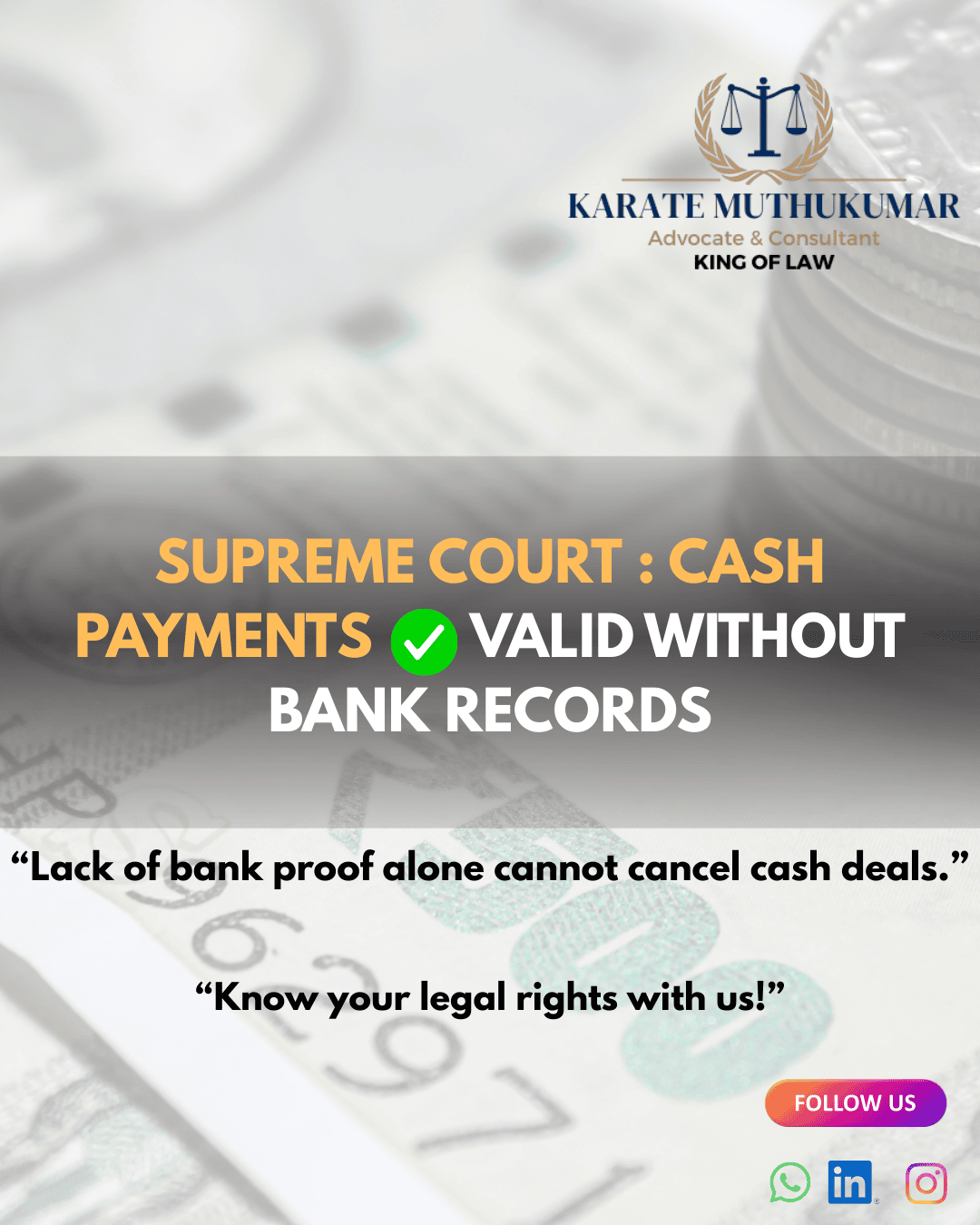When we talk about money transactions today, most people think of bank transfers, UPI, or cheques. But what about cash payments? Can they be questioned in court if there’s no bank proof?

📌 The Case in Simple Words
A lender gave ₹30.8 lakh to a borrower.
Out of this, ₹22 lakh was transferred through the bank.
The remaining amount was given in cash.
The borrower signed a promissory note, confirming the total loan.
What happened in court?
The Trial Court said the borrower must repay the full loan with interest (₹35.29 lakh).
The High Court reduced it to ₹22 lakh, saying the cash part could not be proved without bank records.
The matter went to the Supreme Court.
⚖️ Supreme Court’s Decision
The Supreme Court restored the Trial Court order and clarified:
✔ Cash is valid payment – Lack of bank entries alone cannot reject it.
✔ Promissory note is strong evidence – If someone signs it, they can’t later deny the loan.
✔ Burden of proof shifts – Once a written acknowledgment exists, the borrower has to prove otherwise.
✔ Practical reality – In India, many genuine transactions still happen in cash. Courts cannot blindly reject them.
📖 Why Is This Judgment Important?
This decision is a big relief for many people:
Businessmen & Traders: Who often deal in mixed payments (cash + bank).
Families & Individuals: Who lend/borrow money during emergencies.
Lawyers & Litigants: Who now have clarity that written acknowledgment of cash is sufficient in law.
It ensures that genuine lenders are protected, and borrowers cannot escape liability just because the payment was not made through a bank.
📝 What You Should Do in Cash Transactions
Always take a written proof – promissory note, signed receipt, agreement, or acknowledgment.
Prefer witnesses – Having someone witness the transaction makes it stronger.
Avoid very large cash payments – As per tax laws, cash transactions above certain limits may attract penalties.
Know the difference – This ruling protects civil transactions (loan disputes), but in taxation, separate rules apply.
🔑 Takeaway
Cash transactions are not illegal.
Courts will honor them if proper proof exists.
Bank record is not the only way to prove a payment.
The Supreme Court has given a clear message:
👉 “Don’t fear if your transaction was in cash – as long as you have proof, the law will protect you.”

